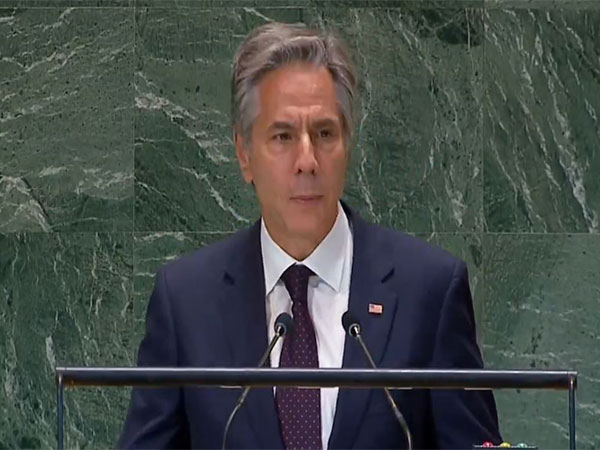
New York: Affirming support for the reformation of United Nations Security Council to better represent the developing world, US Secretary of State, Antony Blinken said that the United States has long endorsed permanent seats in the council for India, Japan and Germany.
Speaking at the 'Summit of the Future' at the 79th United Nations General Assembly in New York on Monday (local time), Blinken put forward the US' idea of two permanent seats for Africa, one rotating seat for Small Island Developing States, and permanent representation for Latin America and the Caribbean.
"Reforming the UN Security Council to better represent the developing world and, more broadly, the world as it is today. The United States believes that this should include two permanent seats for Africa, one rotating seat for Small Island Developing States, and permanent representation for Latin America and the Caribbean. In addition to the permanent seats for countries, we've long endorsed Germany, Japan, and India," he said.
"The United States supports starting negotiations on Council reforms immediately," he added.
Blinken conveyed the US's commitment to adapting the UN system to reflect the current geopolitical situation driving the world, which didn't exist back in 1945. However, he resolutely opposed to any revision of any reformers, which could alter the core principle of the UN Charter.
"The United States is committed to adapting the UN system to reflect this world of today and tomorrow--not the one that existed in 1945 but we are and we will remain resolutely opposed to revisionism. We will not accept efforts to tear down, dilute, or fundamentally alter the core principle of the UN Charter," Blinken further said.
Notably, India has long sought a permanent seat in the Security Council to better represent the interests of the developing world. The nation's quest has gained momentum with support from the international community.
The United Nations Security Council (UNSC) is composed of 15 member states, including five permanent members with veto power and ten non-permanent members elected for two-year terms.
The five permanent members of the UNSC include China, the United Kingdom, France, Russia, and the United States. The non-permanent members of the United Nations Security Council are elected for 2-year terms by the UNGA.
Earlier on Monday, Prime Minister Narendra Modi, in his address in the 'Summit of the Future' at the UN General Assembly in New York, also called for reforms in the global institutions and termed reforms the "key to relevance."
He also called the African Union's inclusion as a permanent member in the G20 an "important step" in this direction.
PM Narendra Modi also expressed India's willingness to share its experiences of success with the Global South. He said that the success of humanity lies in "collective strength" and not the battlefield.
"When we discuss the global future, we must accord the highest priority to a human-centric approach. While prioritising sustainable development, we must also ensure human welfare, food, and health security. By lifting 250 million people out of poverty in India, we have demonstrated that sustainable development can be successful. We are ready to share our experiences of our success with the Global South. The success of humanity lies in our collective strength, not on the battlefield," PM Modi said.
Later during the special briefing on Prime Minister's US visit, Foreign Secretary Vikram Misri also appreciated that the UN Summit document has a detailed paragraph on UN Security Council reforms, which is a "very good beginning."
"I would only point you in the direction of the fact that for the first time, a UN Summit document has a detailed paragraph on UN Security Council reform, so it may not have every single detail in every area that we would imagine or we would like there to be but I think it's a good beginning and we look forward eventually to the beginning of text-based negotiations in a fixed time frame going forward. But this should be seen as the first step towards that objective and the fact that till now we haven't really had discussions on the basis of text but an agreement at this level in the pact where it keeps open the possibilities of a reform of the UN system is a gain from any perspective," he stated.